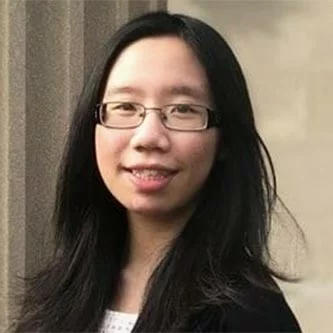IS BA in Peace and Conflict Resolution
In collaboration with the Interdisciplinary Studies (IS) program, the Matsunaga Institute offers a flexible, student-designed Bachelors in Peace and Conflict Resolution. The program’s core includes three courses that give students basic skills and knowledge in peacebuilding, as well as the opportunity to practice conflict resolution. Students are then free to design an academic program that aligns with their interests, needs, and goals. Students work closely with faculty advisors to develop a coherent, multidisciplinary course of study. Students have the flexibility to concentrate on a specific area of interest or to take a broader approach to peace and conflict studies.
Learn more about the Matsunaga Institute for Peace.

What was your fondest memory at the Matsunaga Institute?
Being able to hear from my classmates (from all of my different classes) their vision of a better future, and where we can effectuate positive change. That has given me the motivation and hope to continue to find ways to improve the status quo, whilst involving as many stakeholders as possible.
Cindy Ng, 2021
BA in Political Science; IS BA in Peace and Conflict Resolution [concentration: US-AS Relations]
Additional Details
Participation/Graduation in the program requires:
- Enrollment in the University of Hawaiʻi
- Submission of a proposed course of study
- Minimum GPA of 2.0 or higher
- Upon acceptance, a minimum of 21 credits must be completed while enrolled in the program
- Required 2.5 GPA in your major to graduate
- No grade below a C
In addition to University core requirements, the major requires at least 36 credits including:
Core Courses (9 credits)
- PACE 310: Survey of Peace and Conflict Studies *
- PACE 495: Practicum and Internship (or faculty-approved substitute) *
- And select one of the following core skills courses:
- PACE 447: Introduction to Mediation *; or
- PACE 429: Negotiation *
Elective Courses (27 credits)
Selected in consultation with the student’s IS advisor. This is a guide and not an exhaustive list.
- PACE 315: Personal Peace: Stories of Hope*
- PACE 345/ANTH 345: Aggression, War, and Peace
- PACE 325/CLAS 325: Greek and Roman War Literature
- PACE 373/POLS 396: Nonviolent Political Alternatives
- PACE 380/COM 380: Media Communications Conflict
- PACE 387/PHIL 387: The Meaning of War
- PACE 399: Directed Reading*
- PACE 407/ASAN 407: Peace Processes in Philippines and Hawai`i
- PACE 410: History of Peace Movements
- PACE 412: Gandhi, King, and Nonviolence
- PACE 413: Terrorism
- PACE 420: Introduction to Human Rights*
- PACE 430: Leadership for Social Change*
- PACE 436/GEO 436: Geography of Peace and War*
- PACE 440: Peacebuilding in Performance
- PACE 450: Protest Under Occupation*
- PACE 460: Indigenous Nonviolent Action in the Asia-Pacific*
- PACE 468: Introduction to Facilitating Organizational Change*
- PACE 470: Advocating for Children: Rights & Welfare*
- PACE 477: Culture and Conflict Resolution*
- PACE 478: International Law and Disputes*
- PACE 480: Managing Human Conflict*
- PACE 482: Research and Peace*
- PACE 485: Topics in Peace and Conflict Resolution*
- PACE 489: Hiroshima & Peace (summer only)
- ANTH 423: Social and Cultural Change
- BIOL 310: Environmental Issues
- COM 340: Intercultural Communication
- COMG 455: Conflict Management*
- ECON 332/SUST 332: Economics of Global Climate Change
- ECON 414: Global Economic Crisis and Recovery
- GEO 435: Political Geography of Oceans
- HDFS 350: Leadership and Group Process
- HRM 463: Negotiation and Workplace Dispute Resolution
- POLS 315: Global Politics/International Relations
- POLS 316: International Relations*
- POLS 319: International Organization
- POLS 339/WGSS 439: Feminist Theory
- POLS 394/WGSS 394: Co-ops, Communes, Collectives
- SOC 332: Sociology of Law*
- SOC 446/WGSS 446: Gender Violence Over the Lifecycle*
Note
Only 9 credit hours from any combination of PACE 399 and PACE 495 courses may be applied toward the major.
* Distance learning (online) is available.
Students interested in the IS BA Peace and Conflict Resolution should carefully review the following Interdisciplinary Studies pages:
For questions or assistance, contact Interdisciplinary Studies (isp@hawaii.edu) or the Matsunaga Institute (uhip@hawaii.edu).